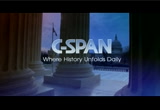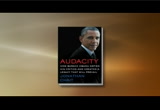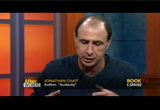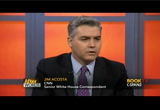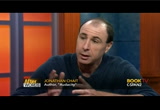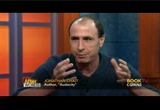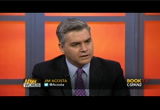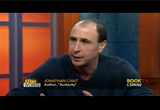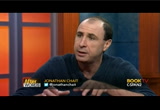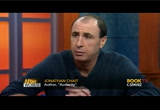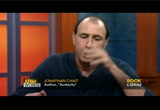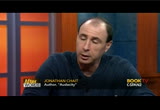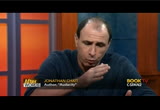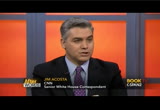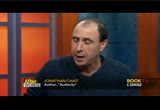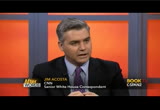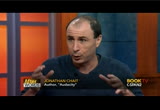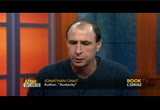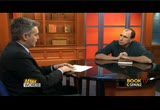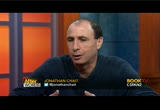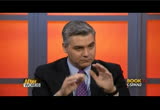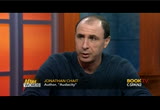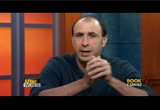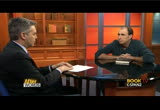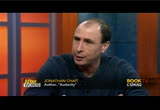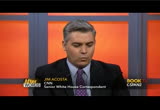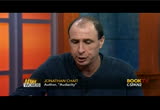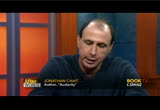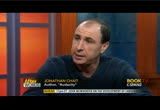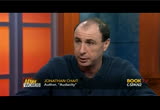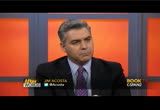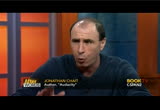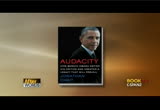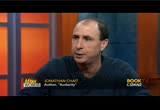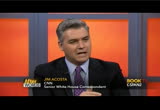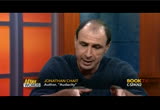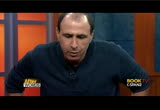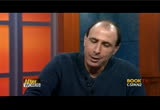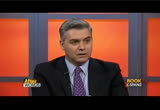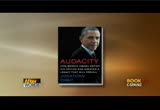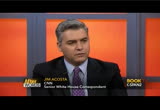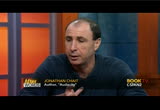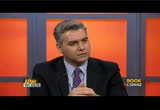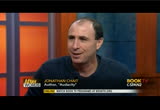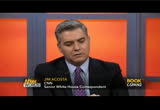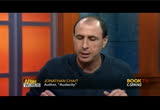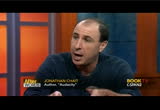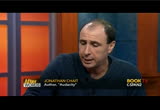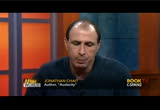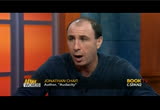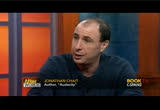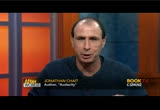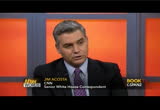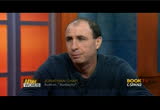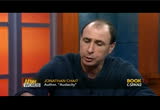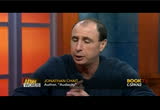tv After Words with Jonathan Chait CSPAN January 14, 2017 10:03pm-11:01pm EST
10:03 pm
[applause] >> i thank you for your questions which made for a good discussion. as i said before the book is on sale outside. please help yourself, [inaudible conversation] >> c-span, where history unfolds daily. in 1979, c-span was created as a public service by america's cable television companies. its prior to today by your cable or satellite provider. >> afterwards is next on book tv. cnn sr. white house correspondent jim interviews jonathan chait.
10:04 pm
>> host: joining us now is the jonathan shea, the author of audacity. thank you for joining us. i love the book, a fascinating look back at the obama presidency. i was struck by the way it begins. it begins with a chapter on what you call america's final sin. why is that? >> because when people look back on obama 100 or 200 years from now when his presidency, the first thing they'll learned that he was the first african-american president or the first non- white male president. that was not just a historical footnote and this is in just a breakthrough, but it's something that defined in the public mind
10:05 pm
something he had to grapple with and i try to make an argument in the book that it's not just something that happened to him, it was something that he helped shape and create a narrative of race in america that help bring america forward. so it was hardly incidental. it drove opposition for him in a huge way. race was just central, the perceptions of obama and everything he did from healthcare on work was driven. and i do try to show it in them. away driven by racial perceptions but it's also something he struggled with that first. and eventually mastered in a way that that i think we should study and it's important part of his achievement. >> one thing i noticed covering the white house during the obama presidency is how much barack obama tried to get away from this issue. he tried to avoid dealing with this issue.
10:06 pm
he was brought to deal with the issue from time to time, how did that affect the way you think the public perceive his presidency and perceived his ability to move legislation in washington when he was somebody who did not want to always have this front and center? >> guest: i think the way he dealt with race changed dramatically throughout his presidency. in the first three years he was afraid of the question. when he was asked about skip gates he gave an answer about a distinguished harvard professor outside his own home, and outrageous case maybe not the most violent case of police abuse but an outrageous case and he gave an opinion about a professor who is his friend and this became a huge controversy in the problem he had of his own by bringing both parties to this
10:07 pm
high-profile way. so this was a cleanup operation and he tried to stay away from it. over his presidency he learned how to wade into the issue in a way that he could control it in shape the narrative. the chapter ends with his speech on the bridge commemorating the 50th anniversary on the march on selma. in this dramatic speech he gave where he wove the civil rights movement into the story of america. he made it not just a thing that happened incidentally. and the way i learned american history was more progressive version of history that my parents were taught but still inside bind race. when i was reading history as a kid you read your chapter here's what happened in the 20s on 30s and here's what were happening to african-americans
10:08 pm
at the time and some of the little trivial thing that put them off to the side of what was going on. but obama told the story of race that made it central that the african-americans experience was the heart of america's journey to a more perfect union. the story he began telling to america when he he burst on the scene in 2000 ford was almost completed through his presidency and this version of history that he formed as president of the united states. he was was acting as a public intellectual as presidency to tell the story. >> he still had to deal with animosity thousand part racially driven at times. you saw this in the two party rallies. the way you remember his dealings with congress you talk about that moment when
10:09 pm
congressman joe wilson said you live. during that one speech. he had to deal with ugliness at times. that other presidents did not have to deal with. >> guest: i make this place in my book but let me give conservatives their due. i think conservatives are widely taken it that their ideas were constantly investigated and interrogated for signs of racism when you cannot always be sure it was there. joe wilson is a great example. joe wilson screened obama knew could say he never would've done that to a white president. on the other hand you can look at how republicans treated bill clinton. in many ways it was just as bad. you had jesse helms threatening violence to bill clinton when he visited his home state or warning that he would be shot. you had these insane conspiracy
10:10 pm
theories and places as dignified as that wall street journal about him as a murder drug dealer. you had serious problems during clinton's times as well. conservatives have a point when liberals say you only do this because he was black, this became a way for people on the left to dismiss all conservative objections in politics and all their theories is simple racism. however, it was true and he can show it that politics became much more racialized in obama's time. the degree to which people had racial animosity, drove their politics much more under obama then they were before. people who are suspicious of african-american, any measure you want to take of racism racist feelings became much more heightened partisan politics
10:11 pm
when obama came on the scene. so obama had to deal with the world in which racism and racial feelings became almost impossible to pull away from other kinds of conservatives. so again over time he found a way to deal with it. in a way that was to his advantage into america's advantage as well. >> and you think this time will be looked at as a time of racial healing? under the obama obama presidency or was it really ripped apart? >> i think there are elements of both. i think what america became more aware of racism. you can look at polls about police abuse, about the clear issuer i think most white
10:12 pm
americans were just not aware of the scale of the problem. and it's not always obama's doing, cell phone videos made a lot of weight americans aware of the mistreatment of african-american cycle on routinely. i think many of us assumed it must be a rarity. >> and came onto the scene. >> i do think he had success in looking at different vision. he close a look please have a tough job some of them have legitimate reasons for fear, we we can't try them all with the same brush. just because some of them to bed things doesn't mean all of them do bad things. he can can also relate to the fear that african-americans have with the police. he had a a marvelous ability to see all sides of the issue and say here are practical ways we can move forward. >> this is an example of the way
10:13 pm
he dealt with the racial question no drama obama. >> he could be a breakthrough he could be an african american president but also speak to the issue the way that i think was relatable to the majority of americans. all americans didn't see it that way. it was significant minority almost entirely white that saw him as a black man speaking for black america coming to white america in a spirit of hostility. this is the minority of america. it was enough minority to give donald trump the nomination and then through a series of strange events allow him to squeak into the presidency with the minority of the vote. nonetheless, obama is the figure who can speak to a conciliatory
10:14 pm
majority vision of racial understanding. as as indicated by his approval ratings which are very high. in a way that no other figure in the united states can. >> moving forward in the book, i find it fascinating with tackling the obama presidency because it's the aspect that his advisors will tell you he doesn't get enough credit for that is preventing a second great depression. you make the the observation in the book that the president was not going to get credit for this. you locate credit for preventing something really bad from happening, explained that. >> guest: that's just the nature of how people credit politicians. you credit credit them for improvements but not things that didn't happen. roosevelt got credit for helping and the depression but it took a
10:15 pm
long time to do that because the depression had already gone through years of reaching the bottom before roosevelt took office. if roosevelt had taken office and instituted policies three years earlier no one would've credited him with what happened. it would've been so much worse if obama been there. part of the problem is that he did know how bad the crisis was, although the models of what happened to the economy in 2009 understated the extent to the crash in 2008. so we didn't have measures quite large enough to contain all the damage. so to plummet when there is a lot of pain and it took a long time to heal all the pain that resulted. to all people saw was that obama had an office and then things got worse. they cannot say or say here's what would happen if we didn't institute these policies.
10:16 pm
>> host: i remember when he was inaugurated there are hundreds and thousands of jobs being lost on a monthly basis. and he almost came into office as a firefighter. you talk about a point in the book where is treasury secretary who is an economic advisor was basically saying this is really bad and this is probably how you're going to be remembered and that is preventing the second great depression and obama said why don't want to be remembered for that. i want to to be remembered for being a transformative president. but but he had to be a five-minute first. she had an ambitious structural agenda that he wanted to tackle. the main items being climate change and health care reform and also education and some other areas. that he comes into office and is the greatest emergency and 75 years and they're telling them forget that stuff the house is on fire were going to put out
10:17 pm
the fire that's it. and obama set i want to do both. i make the case that he did do both. he put out the fire he stopped the recession from spiraling into another great depression. you can argue that he could've done more by the united states came out of this crisis much better than any other advanced economy that had the financial system and with through financial crisis. so obama's response was first in class and while everyone else including the administration was telling him it would supersede all the other structural reforms he still managed to get to those things anyway. >> host: people forget that the bank bailout started at the end of the bush administration. he has to pass a stimulus package or they feel like they had to pass a seamless package and what you lay out in the book very well is that you start to see the beginning of the obama
10:18 pm
white house and the republicans in congress at loggerheads. though he did have a democratic-controlled congress and the beginning of both houses of congress but getting republicans to come along and support the stimulus and other measures that were needed at the time was difficult for him. >> remember at the beginning of 2009 he nine he only had 50 democratic senators. so it was still republican. he became the 59th vote. he only had a short time we had 60 votes. he needed republicans to pass stimulus. he assumed the republicans are passive because did pass a similar see her before. in 2008 when they had the first tiny inklings of the crisis congress passed the stimulus and it was overwhelmingly popular. well over 300 votes. paul ryan was her stimulus
10:19 pm
everyone on the republican side was for stimulus. that's way say you put money in people's pockets and spend it because the republican in office was going to suffer the damage of the crisis if they didn't pass the stimulus and stop the recession. almost a year later now they realize the crisis is dramatically worse than they ever thought. and the argument for stimulants are much greater. what they thought was a tiny grease fire is now a ten story place. another republican party says we we don't believe in this theory it's all nonsense. they said they don't have an idea of what they're talking about and we need to cut the deficit now. so right now the middle of the crisis and thus we were going to solve it. they turned on a dime. at the same time, there were
10:20 pm
meeting and concluding their political success depended on maintaining political opposition to everything obama did. if you look at the sequence of events you can clearly say republicans made a political decision about what is in their party's best interest and how they would return to power. that job their policy stance and that was the why they decided the economic theory that they believed in when their guy was in office no longer apply. >> this doesn't go a whole lot in the book but i remember it being a complaint among republicans at the time, nancy pelosi said we want. having a very dashmac, to that to think was productive or counterproductive in trying to get republicans on board early in the administration. we talked through republicans on capitol hill they'll say that
10:21 pm
did it to some extent the poison the atmosphere. of these very hardcharging democrats at the tip of the spear for obama at the beginning of the administration. >> guest: i think nancy posey made that comment in response to in the context of an atmosphere where she was trying to get republican votes in their same work in stimulus we don't believe in this at all. so that has to somehow so they had to reconcile these two ideas of how to craft the stimulus when idea was based on changing economics which was the theory that both parties embrace the her before and now they're sending don't believe it anymore so how do you reconcile these ideas instead what we want so we should at least have the upper hand in crafting but she wasn't
10:22 pm
saying we want except input but choosing look, the starting point for this bill is a theory devised by the winning party which is usually how goes. >> host: after the stimulus measure we get right into the thick of the affordable care act and healthcare reform. even some in the white house were saying to the president at that time, wait a minute. going after healthcare reform might not be the best political decision. but obama said no, were doing this. how did how did that shape his first term? for the most part people look at that first term as be more successful than the second term, although pursuing healthcare reform did plant the seeds of republicans taking control of the house in 2010. so healthcare town halls and so
10:23 pm
forth as you recall they were fiery stuff. they start putting the president on this path to eventually deal with divided government. >> i would not accept the premise that democrats would've held the house, i think in an atmosphere where they had total control of government and you had economic crisis and conditions were going to get worst matter what they did people were going to turn against the party in power. i think they would've lost congress no matter what they did. >> i don't think they had any chance to hold onto congress. i think they would've lost matter what. the question is what are they going to do if the two years in which they have the majority are the going to try to change the country and the lasting way. >> host: this was the chance. >> guest: like you set a lot of people in the democratic party and the whole political
10:24 pm
establishment urging them not to do this. it was the conventional wisdom really and was washington that he was making a huge mistake going forward with healthcare reform. i think he saw it as a moral imperative. he was right to do it there are moments when he had to decide if use going forward. healthcare reform was dying. it democrats going month after month trying to get republicans to agree with them on the bill. what can you do what will you saw you write the bill will put her name on it, will give you put massages and serve you drinks, you tell us what you need and eventually one by one every republican dropped off and they asked the remaining republicans what could you agree to they said nothing. >> there are holding onto -- snow so her terms are essentially the chuck grassley.
10:25 pm
>> search said what can you give us any said you have to get other people and other people said were not doing this comes mitch mcconnell went to them and said we need to have unified opposition. he said openly his theory that if people in both parties were signing these bills publicly get the message that there was no real controversy the misses bipartisan and they would support obama and vote for his party. conversely if republicans opposed everything they would see conflict in washington and think things are going badly in all the measures were partisan and punish them and mcconnell was right. spee-01 you went to the signing of the affordable care act, initially there's this thing called the public option which was attached to mitt romney's version of healthcare reform in massachusetts which people called romney care and in the heart of that is an
10:26 pm
insurance mandate that forces you to buy insurance. that insurance mandate is something that not only mitt romney supported at other republicans. it was was somewhat of a conservative healthcare reform concept. you talk about that a little bit even though president obama had a conservative healthcare concept at the heart of his health care reform package he was still struggling to line up republican support. they give up the public option to get it to the finish line. of all the legislative pieces of business he had to tackle this was perhaps the most fascinating piece of business from a legislative standpoint. >> at the beginning obama favored the public option. so when republicans had to explain what they didn't like they said the public option. the rest of the bill is romney care weekend like that stuff
10:27 pm
with the public option that makes it unacceptable. they thought that that was going to always be part of the bill. so he says okay will cut that out and i think he needed to kiss you had a handful of democrats who post that. he needed every single democrat and some republicans. so then republicans republicans came up with other reasons to oppose the bill. it is notable that the bill, even the one that paul ryan was supporting was very similar to what obama ended up signing. there is really the same thing that happened when clinton tackled healthcare reform and 939-4394 which is republicans ended up repeating ideas. these ideas only serve the purpose of allowing republicans to say will for something but not your bill.
10:28 pm
when you describe the signing of the affordable care act as one of the most successful social reforms in the united states. now that were on the cusp of the trump administration, he has made this job one to repeal obama care they haven't laid out how they will replace it, we haven't seen a replace bill presented to the american people at this point but they want to get rid of obama care. how does that affect things? . .
10:29 pm
10:30 pm
so right now they're trying to wait another two or three or four years. >> but then to repeal. >> but they will put that off for years to give themselves from even more time but it will stay in place in you cannot get rid of it because it will make a lot of people upset. so tell us before it is replaced you had tens of millions censured and they were ignored by washington because they had no pot -- program to take care of them they did not have existing benefits so they could be ignored every single day canal is very hard to take
10:31 pm
away a benefit that somebody has it is easy to prevent them from getting something new cassette to continue tim ignore them now will they will discover it is hard to take away. i don't know what will happen to obamacare. is possible that they will extend and extent and not change at all. maybe some relatively small changes they been conducive thing that is 90 percent similar it is possible they could repeal it and come up with nothing but then you will have a massive backlash >> new health care town halls. >> would never happens obama
10:32 pm
has changed health care politics forever that the republicans administration cannot command without any cost to itself they did that under bush it did not hurt them but they can do that anymore not without immense political cost. >> moving forward to the obama legacy but his attempts to deal with climate change and environmental legacy you talk about how he tried to bring about captain trade that went nowhere even fellow democrats we remember so well he put the bill up and shot it dead and that was the head of cap-and-trade. so he had to do this administratively not very sexy no bill signing
10:33 pm
attached to it but used to consider this to be a big part of his legacy. >> i do. because john mccain talked-about cap-and-trade. new to being rich favored cap-and-trade. >> and for those folks in me not understand? >> guest: in was the conservative plan dealing with clementine judge with an overall cap overall to remissions but even leave the market to decide the most efficient way for the private sector for those savings and then they will come up with the cheapest way and then saw the market would work. successfully and the cost
10:34 pm
was way below projections. >> so conservatives is a we have this plan, this is how we will so climate change but once obama was for it then republicans were against it so captain traded died then there was a long period when obama had no recourse on the environment. illness seems like it was a complete failure that this was irreversible damage to the planet. but he found another way around it.
10:35 pm
and deficiency for years. and then using less and less energy. and then had to be tightened up. then the biggest piece was the power sector. of every state having to reduce its emissions but kohl was the dirty is energy source by far to be much cleaner they were kicking coal everywhere. but lot of things that he did and they try to make the case in the book escaped notice the environmental
10:36 pm
regulations. >> even like local airconditioning standards. piece by piece the stimulus had $90 billion but hardly anybody paid attention to it people sitting care if it would lose it because we would die right now. to have a huge environmental reform and because wind energy and solar became much cheaper because mitt romney
10:37 pm
at 1.took reporters to solon drug to highlight here is money but the net failed so you talk about how mitt romney went after the president and then you point out that mitt romney said in a speech if you want to do that i this want to help you make your life better. so the republicans were making hay out of this going after the environmental legacy. >> right. looking after the long term interest of your country even more so politicians want people to be happy right now.
10:38 pm
and what will happen to hundred years down the line. and to forget about the ocean i will help you get a job right now. >> it was uh good line but romney promised deflected he would get rid of the job killing regulations and taxes in a get unemployment down as 60% -- a 6%. >> and then she mccarthy became the administrator.
10:39 pm
>> but he barrault the best tedious from the republican party. so agena mccarthy was the official with of northeast emissions compound. and they believed they could impart this model nationwide. and they have but again this was another issue with the moderate liberal position. the progress got no credit or no attention. with the disaster that had not have been.
10:40 pm
>> don't get credit. >> so even if climate change would have been right away and miami was submerged 2015 obama would god have gotten any credit for. see you get even less credit for that but this is the leader taking on a thankless task that is why there was no international agreement on climate change. >> host: one to talk about foreign policy it is such a huge part of the obama legacy and donald trump on the campaign trail to say he wanted to bomb isis but a
10:41 pm
big part of his foreign policy legacy is killing osama bin motta and. >> this is a huge subject with uh president's foreign policy legacy how will we see that years from now? to go on that ambitious mission but then not enforce it. >> it is not be official account. and to understand this bill years ended shortcomings but
10:42 pm
then to be a tremendously bremer s vol president. but i would argue and not to be a transforming their foreign policy and manage them up predecessor george w. bush plunging and managing to reverse a lot of the damage. and with that to a comment in a live interview. >> that is my redline. and the invitation will
10:43 pm
argue the have the chemical munitions out to send a mission. >> never developed a response because they weighed didn't have any better options. so what would of propaganda with the rest of the world to have the intelligence because we have tried that. sometimes it works but usually it does not. they did not have great responses. >> but the iran deal was a tremendous success. i know they either change
10:44 pm
will be reversed. >> talk about what is happening soon another fascinating part of the foreign policy is dealing with russia and vladimir putin. and then with mixed results. to say he invaded cray me get to put the sanctions on moscow and it did affect their economy plan now donald trump comes along and everything changes. and then has set up from the
10:45 pm
election. >> at the time and then realized that you could not go to war with us ukraine with russia because their interests are much stronger than america's interest. to send american troops into the territory. and then to have the diplomatic response we organized opposition in europe in isolated did russia had enriching themselves of that like you say if you don't like the
10:46 pm
american government, he does. we don't know how he is intertwined with the president will defend his likeness on neighboring countries and to be lobbied against those very sanctions. but that would be sad because he got the american government that he wanted. >> talk about donald trump because now into uh candidacy donald trump was the king of the of further movement -- birther movement
10:47 pm
10:48 pm
the last chapter to be dominated about the grassroots politics of opposition and how trump would manage to tap into the backlash. is the proponent of a racist conspiracy theory. and that is how he won the republican nomination. that is the most important trend of grass-roots politics. but that was the sentiment
10:49 pm
that trove the t party that made it possible for the republicans of congress. so that is what he could exploit. is not the future of the country. when we look back 100 years from now life think trouble will be one of the figures that comes on periodically exploit its right wing populism. george wallace general mccarthy or become president but was influential to tap into something important but i think it is right that the country is moving in the
10:50 pm
right direction. and the positive and the story. >> if you talk to people that he is much more pragmatic in practice than out on the campaign trail. day think he polities elements to say after all these things has said the mediation and golan to quick. >> clearly it is happening with health care. just republicans in congress. so they don't know how to deal with that problem but they don't believe then
10:51 pm
10:52 pm
and then to do something cooperatively. >> so one of the final moments of the book is the disappointed the left is an interesting subject. and that republicans are much better to rally around because barack obama that you argue from a progressive standpoint would achieve quite a bit. and that changes it to a great extent. said to tap into uh discontent to try to trace
10:53 pm
10:54 pm
a sellout and has not done enough. >> those criticisms are identical when you complain about the last eight democratic presidents it is not that is you. >> of bay liberal of a progressive edge discontent shows the problem on the left there just not happy to fall in line. >> what is the answer 20/20 like barack obama that is a pragmatic progressive or bernie sanders who is much more liberal?
10:55 pm
or go back to the bill clinton model that is the southern democrat? what do you think? >> to be a political success and a policy success this is what you should try to do. this is why obama made him vice president. >> but what about 2020 quick >> it depends on the states of the economy. donald trump will be a bad precedent will do what he
10:56 pm
10:57 pm
10:58 pm
and then to restore basic civil rights. to fill lincolnwood do at the time. >> end to this day to privatize social security is a measure of the ambitions that they tried to dismantle. but mostly they fail. i cannot talk about the liberals to embrace that model but on that scale it is the closest thing we have
10:59 pm
29 Views
IN COLLECTIONS
CSPAN2 Television Archive
Television Archive  Television Archive News Search Service
Television Archive News Search Service 
Uploaded by TV Archive on

 Live Music Archive
Live Music Archive Librivox Free Audio
Librivox Free Audio Metropolitan Museum
Metropolitan Museum Cleveland Museum of Art
Cleveland Museum of Art Internet Arcade
Internet Arcade Console Living Room
Console Living Room Books to Borrow
Books to Borrow Open Library
Open Library TV News
TV News Understanding 9/11
Understanding 9/11